Humans
Sign up for our newsletter
We summarize the week's scientific breakthroughs every Thursday.
-
 Health & Medicine
Health & MedicineWhat parents need to know about kids in the summer of COVID-19
So far, evidence suggests children don’t often get severely ill from COVID-19, but there’s more to learn about their role in its spread.
-
 Humans
HumansThe Dead Sea Scrolls contain genetic clues to their origins
Animal DNA is providing researchers with hints on how to assemble what amounts to a giant jigsaw puzzle of ancient manuscript fragments.
By Bruce Bower -
 Genetics
GeneticsGenetic risk factors for Alzheimer’s also raise the risk of getting COVID-19
People who have the APOE4 genetic variant appear to be more vulnerable to the disease, but it’s unclear why.
-
 Archaeology
ArchaeologyA biblical-era Israeli shrine shows signs of the earliest ritual use of marijuana
Chemical analyses reveal a residue of cannabis and animal dung on an altar from a biblical-era fortress in use more than 2,700 years ago.
By Bruce Bower -
 Health & Medicine
Health & MedicineWastewater could provide up to a week of warning for a COVID-19 spike
A new study adds to evidence that sewage may serve as an early warning signal that the coronavirus has hit a community.
-
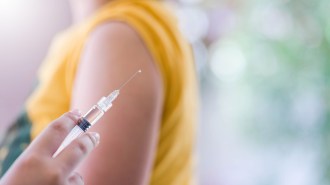 Health & Medicine
Health & MedicineInfecting people with COVID-19 could speed vaccine trials. Is it worth it?
To accelerate vaccine development, some experts argue we should purposefully infect volunteers with the coronavirus. Others warn of the risks.
-
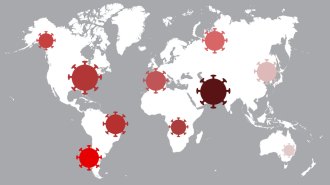 Health & Medicine
Health & MedicineIs the coronavirus mutating? Yes. But here’s why you don’t need to panic
Some studies claim there are new strains of the coronavirus, but lab experiments are needed to see if mutations are changing how it infects cells.
-
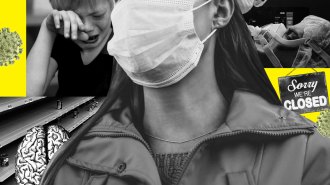 Neuroscience
NeuroscienceHow coronavirus stress may scramble our brains
The pandemic has made clear thinking a real struggle. But researchers say knowing how stress affects the brain can help people cope.
-
 Health & Medicine
Health & MedicinePolitics aside, hydroxychloroquine could (maybe) help fight COVID-19
Hydroxychloroquine may help prevent COVID-19, or it may not. Studies are under way to find out. Meanwhile, here’s what we know.
-
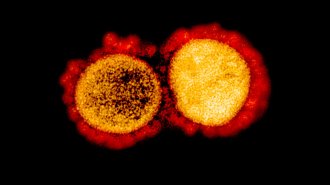 Health & Medicine
Health & MedicineThere are two versions of the coronavirus. One’s not more dangerous than the other
Factors such as a person’s age and white blood cell counts matter more for disease severity when it comes to COVID-19, a study finds.
-
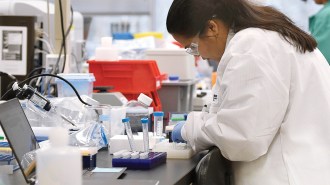 Health & Medicine
Health & MedicineAs we wait for a vaccine, here’s a snapshot of potential COVID-19 treatments
Though a vaccine remains the ultimate goal, researchers are on the hunt for new ways to treat COVID-19.
-
 Genetics
GeneticsThe oldest genetic link between Asians and Native Americans was found in Siberia
DNA from a fragment of a 14,000-year-old tooth suggests that Native Americans have widespread Asian ancestry.
By Bruce Bower